News for 28 June 2020
All the news for Sunday 28 June 2020
England Hockey optimistic on season start, Holland issues spectator edict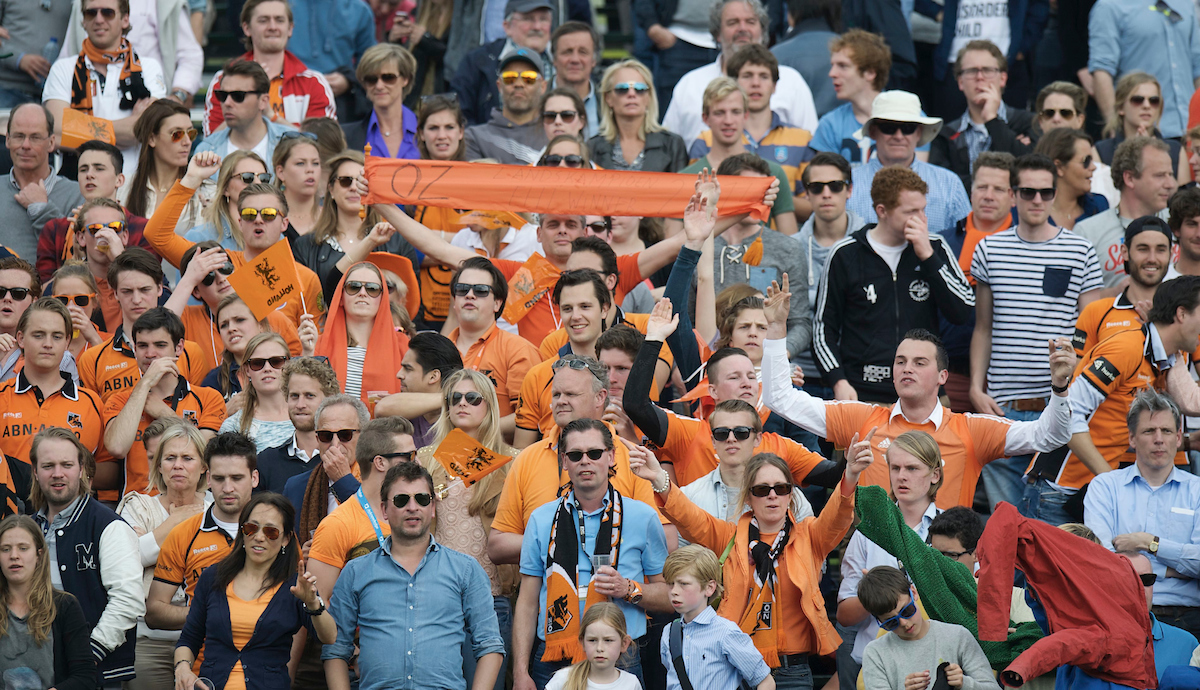
England Hockey’s return to hockey roadmap remains at Step 2, although the national governing body is still hopeful of the 2020/21 season taking place.
English hockey has a five-step plan for hockey to fully commence, with socially distanced training currently in place and the latest recommendation stating that clubs should plan for a normal season.
A statement said: “We fully recognise that different clubs face different challenges, and this is being taken into account in our decision making. We expect that access to facilities is likely to improve over coming weeks as more leisure provision reopens but some pitches may not be accessible for some time yet.”
Meanwhile, sport in Holland will see sports complexes fully opened from Wednesday, while over-18s will be allowed to participate in contact hockey.
As far as hockey equipment goes, a Dutch hockey edict recommends all corner masks to be cleaned after each use with disinfectant spray.
It suggests that this task should be done by substitutes, while masks should be owned and not shared by players.
If hockey matches resume, there will also be a limit of 250 spectators. However, fans will be refrained from singing and shouting and must keep 1.5m apart.
Please help keep independent journalism alive in these uncertain times. With the media industry affected by advertising, we are continuing to offer our coverage free until we return in print.
Ahead of the new season, please subscribe in print or in digital format. Subscriptions for clubs, schools and individuals.
The Hockey Paper
Show must go on, with or without Oltmans
By AFTAR SINGH
KUALA LUMPUR: The national men’s hockey team will resume training at the National Hockey Stadium in Bukit Jalil on Wednesday but without chief coach Roelant Oltmans.
Oltmans, who returned to Holland two months ago, will arrive here tomorrow morning but he will only join the team after he completes his 14-day quarantine.
Malaysian Hockey Confede-ration (MHC) president Datuk Seri Subahan Kamal said Oltmans had under gone two swab tests in Holland and both tests had returned negative.
“He would undergo another test when he lands here but we are optimistic that his test will be negative,” said Subahan.
“Oltmans will not join the training the first two weeks but he will be monitoring their training sessions through Zoom.
“His two assistants – Mohd Amin (Rahim) and Mohd Nasihin (Nubli) will be in charge of the team’s training in his absence,” said Subahan.
A total of 34 players will report for duty under strict training procedures.
“The players are not allowed to train together as they have to maintain social distancing.
“They will do individual training for the next one month,” said Subahan.
“We hope the players will get to train together in August.”
With the cancellation of the Sultan Azlan Shah Cup in Ipoh in September, the team will only have one international assignment this year – the Asian Champions Trophy in Dhaka, Bangladesh, in November.
The dates of the tournament, however, has not been confirmed.
The Star of Malaysia
Lailin takes up long-term plan to boost senior squad
By Jugjet Singh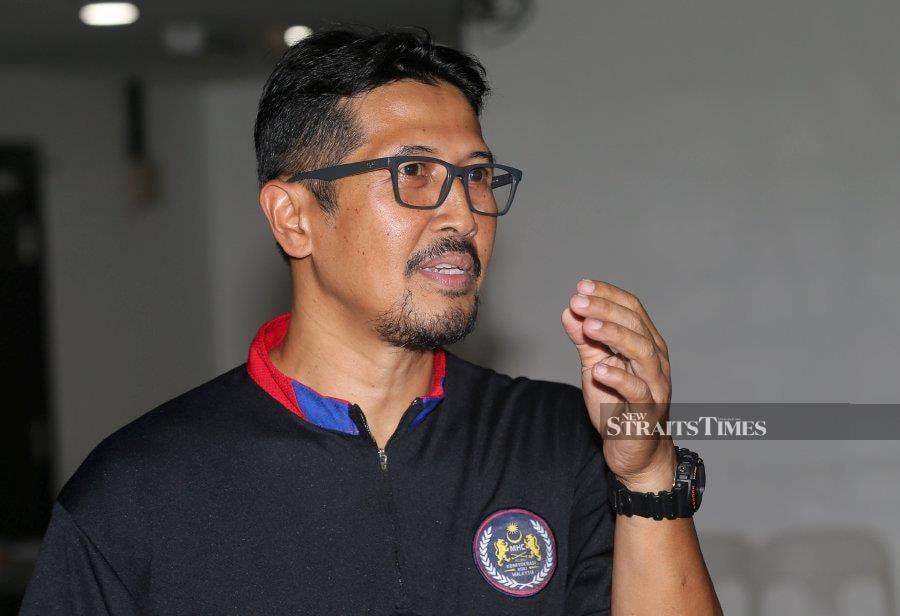
File Photo: National junior women’s coach Lailin Abu Hassan. - STR/OWEE AH CHUN
MALAYSIAN junior women's coach Lailin Abu Hassan is ready to take up the challenge to groom players good enough to help the senior team become Asia's No 1 in eight years.
"Currently, the best juniors in the country are with me. But since it is a long-term project, I will absorb more Under-16 players into the system.
"Youngsters who shine in the Razak Cup (Sept 18-26) will be considered.
"It would be better to have between 30 and 35 players in my squad so that I can groom them to achieve the eight-year plan.
"I am focused on grooming quality players for the senior team," said Lailin.
The coach for the women's senior team will be named next month.
"I have four players, who have played senior hockey, eligible for the Junior Asia Cup.
"We will try our best in this Junior World Cup qualifier," he added.
The Asian Hockey Federation (AHF) have yet to finalise new dates for the postponed boys and girls' Junior Asia Cup.
The women's senior team are ranked fifth in Asia behind India, Japan, China and South Korea.
New Straits Times
Lalremsiami: Seniors motivated us during lockdown at SAI, Bengaluru
The India striker says seniors like Rani and Savita helped keep the juniors motivated during the team’s confinement.
India striker Lalremsiami. - HOCKEY INDIA
Seniors like Rani and Savita - the captain and the vice-captain - helped ease the pain of confinement during lockdown for the Indian women’s hockey team at the Sports Authority of India premises in Bengaluru, striker Lalremsiami has said.
Due to the COVID-19 pandemic, the Indian men’s and women’s hockey teams were locked up at the hostel in SAI, Bengaluru, for more than three months after reporting at the national camp which was planned to be held at the campus. The homesick players returned to their families earlier this week.
Lalremiami said, “Had it not been for the seniors in the team like Rani and Savita who played a huge role in keeping us youngsters motivated, it would have been difficult for us to spend so many days in our hostel rooms with barely any activity apart from some fitness workouts in our rooms.”
“Chief coach Sjoerd [Marijne] and Wayne (Scientific Advisor) constantly checked on us during this time and ensured we [were] doing well but the senior players went out of their way to help us and ensure we [didn’t] feel home sick. They would keep us busy with their stories in the Indian team and experiences from Rio Olympics. These stories inspired me and I, too, want to play for India at the Olympics,” she said.
Grave crisis
That the health crisis was a serious one was not grasped as well until a team of presentation by some doctors, revealed Lalremiami. “At first, when SAI went into a lockdown in mid-March, we (youngsters) never understood the gravity of the situation but followed the rules of not going outside the campus. It was only when we attended a brief talk [or] presentation by a team of doctors who explained about the pandemic that we realised it was a serious issue and we needed to be vigilant all the time. The seniors also spoke to us about the situation and encouraged us to speak out if we had any issues,” she said.
Lalremsiami said despite the 21-day institutional quarantine in Mizoram, where she belongs, she decided to visit her family there as the gap had been a long and because she would have to get back to hockey by July 19, when the players would have to return to the premises. “Initially, I had decided not to go home because of the 21-day institutional quarantine which is compulsory as per state rules for those travelling from different parts of the country,” she said.
“But it has been more than four months since I met my mother and the rest of the family and I was really drawn towards seeing them because once we return to SAI Centre [Bengaluru] on 19 July, my focus will only be on hockey.”
“The [District Collector] has ensured I have a comfortable stay during the quarantine and they check on me everyday. I am very thankful for the State government for showing so much care and concern. It feels good to be back in my home State,” Lalremsiami said.
During her break, she said she would perform her fitness workouts handed to her by Wayne. “I do some fitness workouts that Wayne has given us here in the room. After we return, chief coach has said we will refocus on our goals and work on the areas we discussed during the lockdown basis our analyses from previous matches,” she said.
Sportstar
PHF chief wants result-oriented system to develop hockey
ISLAMABAD: President Pakistan Hockey Federation (PHF) Brig (rtd) Khalid Sajjad Khokhar called on the Federal Government to help the game re-stand on its feet by convening provincial sports authorities meeting to dig out the possibilities of evolving a long-standing and result-oriented system for the systematic development of the game.
Talking to The News here in Islamabad Friday, PHF president said hockey required government and provincial support more than it had ever before. “Even in the best of environment, Federal Government always supported hockey knowing well that it has not only earned laurels for the country, it is also face of the nation. Now if the major share of sports finances are with the provinces, the federal government position even becomes more important. As a guardian of a national cause, it is the responsibility of the federal government to arrange a meeting of all the concerned provincial authorities along with federation officials to ascertain as should be done, what is required, where federations is at fault or what responsibilities the federal and provincial governments have in making hockey a favourite sports of masses.”
He said that the game had seen its highs and lows in recent past what it lacked however was consistent support from federal and provincial governments. “Admitted that following eighteen amendment, provinces also have to show support for the game. It is a must on the federal government to make provinces realize as where centre can help and where provinces can put their share in establishing the base of national sport. History of the country is evident that the federal government always came forwards and helped the game stand on its feet. Amid COVID-19, federal government responsibility becomes even greater. The government needs to come forward to support PHF in coordination with provinces.”
Brig (rtd) Khalid Sajjad Khokhar claimed that there had been no support from the federal government to the PHF during the last almost three years. “We did not get a penny from the federal government during this period of time.”
The News International
Former Pakistan players slam govt for mistreating hockey
KARACHI: Sports fraternity has criticised the federal government for neglecting hockey, which happens to be the national game of the country.
The central government has not released any funds to PHF. And hockey was not included in the recent restructuring of Pakistan Sports Board’s 11-member executive committee.
Former Olympian Hassan Sardar said that Pakistan hockey needs financial assistance from the federal government. So in order to make PHF financially stable the government should convince the private companies to sponsor the national game.
He said there are talented and skillful players but to arrange activities funds are required, which the federal government has not been releasing for three years.
He said that Pakistan Hockey League is the need of the hour. “It will revive the game in the country, but it can be done only through the help of the federal government and corporate sponsorship.
He said Pakistan hockey’s successes at the Olympics are unparalleled. “So we should not ignore the game. There is a good infrastructure of hockey in the country, players are committed to play hockey, the only problem is finances,” he said.
Former Olympian Shahnaz Sheikh said that hockey is the country’s national game and Pakistan has achieved great successes in this sport, including four World Cups and three Olympic gold medals. “So a wrong message will be given if the government does not give hockey its due importance,” he said.
Shahnaz said that the federal government may have their reservations with PHF, but it doesn’t mean that they could ignore hockey.
Pakistan’s former athlete and senior coach Muhammad Talib said that hockey is going through a severe crisis and such acts by the government would give a wrong message to the sports world.
Talib, who has trained Pakistan hockey team as physical trainer a number of times, said that there is a need to overcome the shortcomings of the players. Rather than putting it in isolation the government must support this game, he added.
Pakistan’s former centre forward Kamran Ashraf said that the government must not ignore the game now when around a dozen synthetic turfs have been laid in different cities of Pakistan and several domestic teams have been established.
“Before the coronavirus struck, things were moving in the right direction, but this awful treatment by the federal government has disappointed the stakeholders of the game,” he said.
The junior hockey team is ready to participate in next year’s Asia Cup and it is a golden chance for Pakistan to make a comeback. He requested the federal government to help hockey, or all the hard work done in the last four years would go in vain.
The News International
Sikh Union: Unsung heroes of Kenyan sport
By GEOFFREY ANENE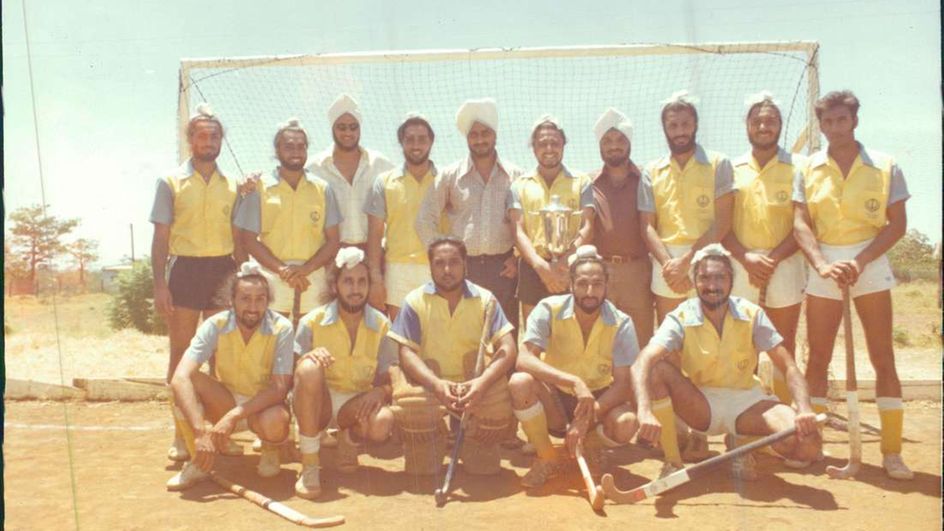
Nairobi Sikh Union pose for a photo after winning the Kenya Cup by beating Khalsa 3-1 in the final in Kisumu. Earlier the Sikhs had won the Kishen Singh Cup, Dashmesh Cup and the Nairobi league Division One. PHOTO | FILE | NATION MEDIA GROUP
No other sport has put the Sikh community in Kenya on the sporting map like field hockey.
Back in the 1970s and 1980s, when Kenya was a powerhouse in this 11-a-side game, Sikh Union Club Nairobi (Nairobi Simba) and Sikh Union Club, Kisumu (Kisumu Simba), were the breadbaskets of the national men’s team.
Sikh Unions in Mombasa, Nakuru, Eldoret and Nyeri also contributed to the growth of hockey in the country.
But it is Nairobi Simba and Kisumu Simba who have made the biggest contributions.
For Nairobi Simba, it fits perfectly the description it has placed on its Facebook page of being “the birthplace of hockey in Kenya.”
Sikh Union Club, Nairobi, came into existence in the mid-1920s, although hockey is believed to have been played for the first time in Kenya around 1900 by the Sikh and Goan communities.
The club was started for sports, basically for young Sikh generations to play sports. It dictated proceedings as evidenced with a cabinet full of trophies.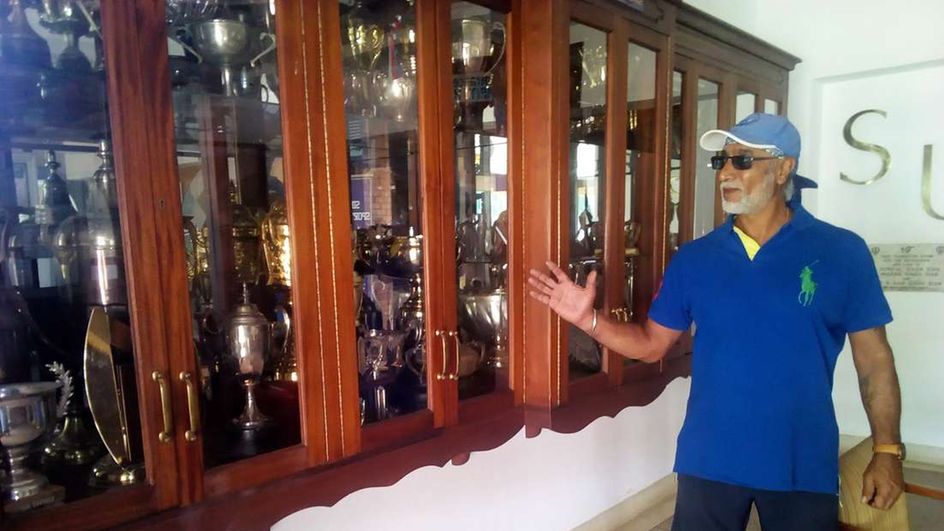
Narinder Singh Chana "Nindi" shows trophies at Sikh Union Club in Nairobi on May 27, 2020. PHOTO | GEOFFREY ANENE | NATION MEDIA GROUP
Narinder Singh Chana “Nindi” was one of the key players when Sikh Union Nairobi chalked up huge successes in the 1980s and early 1990s.
He was one of the six players who joined the club in 1978.
DECLARED 'MEDICALLY UNFIT'
“We (Nairobi Simba) had some bit of change in 1978 when old international players stopped playing competitive hockey. Tarlochan Singh “TS” Channa was the team captain. He brought in six players from Sikh Union Tigers (second string side). For three seasons, Sikh Union Colts (the ‘A’ team) cleaned all the trophies in the country.
“Out of the six youngsters, four went on to represent Kenya up to the 1984 Olympics,” says “Nindi” who missed the Los Angeles Games after being declared “medically unfit” a day before the team left for the US.
Kenya had previously competed at the Olympics in 1956 (Australia), 1960 (Italy), 1964 (Japan), 1968 (Mexico) and 1972 (Germany).
“Nindi”, who is now 59 years old, featured at the 1982 Junior World Cup in Kuala Lumpur, Malaysia. That was the first and the last time Kenya competed at the Hockey Junior World Cup.
The left winger also toured Canada, USA, Mexico and UK with Kenya team, played in Africa Cup of Nations and played in India, Pakistan, Spain, Holland and Germany in 1983.
“This club alone has produced 26 Olympians and 13 players who have gone to the World Cup,” said “Nindi” as he showed this writer the photos of the legends plastered on the wall of Sikh Union Nairobi building, which is located along Professor Wangari Maathai Road.
When Kenya started its first league 30 years ago, Nairobi Simba continued to show their might.
They won the league from 1991 to 1994 and also flew the Kenyan flag high by finishing as runners-up in Africa Cup Club Championships in 1991 and 1995.
Armed Forces became too hot to handle from 1995 to 2004.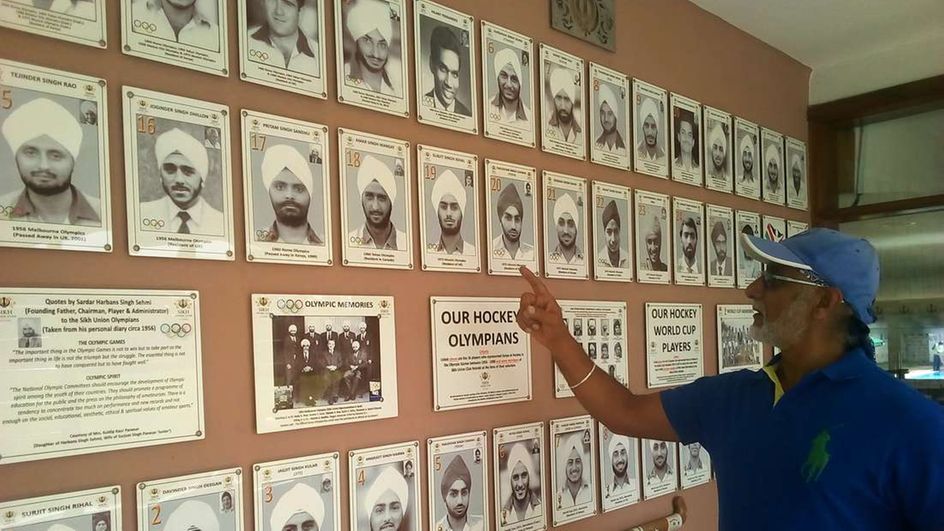
Narinder Singh Chana "Nindi" counts portraits of Nairobi Simba players who went on to represent Kenya at the Olympic Games and World Cup at Sikh Union Club in Nairobi on May 27, 2020. They are 39 in total. PHOTO | GEOFFREY ANENE | NATION MEDIA GROUP
The field then became crowded with Kisumu Simba, Strathmore University’s Gladiators, Wazalendo, Kenya Police and Kisumu Simba winning the league on different occasions between 2005 and 2011 before Nairobi Simba won its last league title in 2012.
Kisumu Simba Hockey Club changed to Butali Sugar Warriors in 2014 due to sponsorship reasons.
Butali have won four of the last seven league titles, including last year when, for the first time in history, Nairobi Simba finished in the relegation zone.
“It’s a sad thing that a club that has contributed a lot of international players for Kenya got relegated last season. However, it’s not the end of an era for us.
“In fact, it’s the beginning of the second phase of revival of Sikh Union. Within two years, we will be back on top and we will be hard to beat after that,” swore “Nindi.”
He says that Sikh Union dropped because of many factors, which include fitness issues and squandering a lot of scoring chances.
“Goals win matches. You can be a brilliant dribbler, good for spectators, but if you don’t score goals then it’s not enough. We have had good changes and are taking a professional approach to running hockey to rectify the mistakes we had.”
FOR THE FUTURE OF OUR KIDS
Sikh Union Nairobi has, meanwhile, invested in an artificial turf pitch, which it opened with a tournament won by Kenya Police in July last year.
“We spent Sh65 million to Sh70 million to build this stadium for the future of our kids and Sikh Union itself. It lacks spectator space, but it can host international matches.”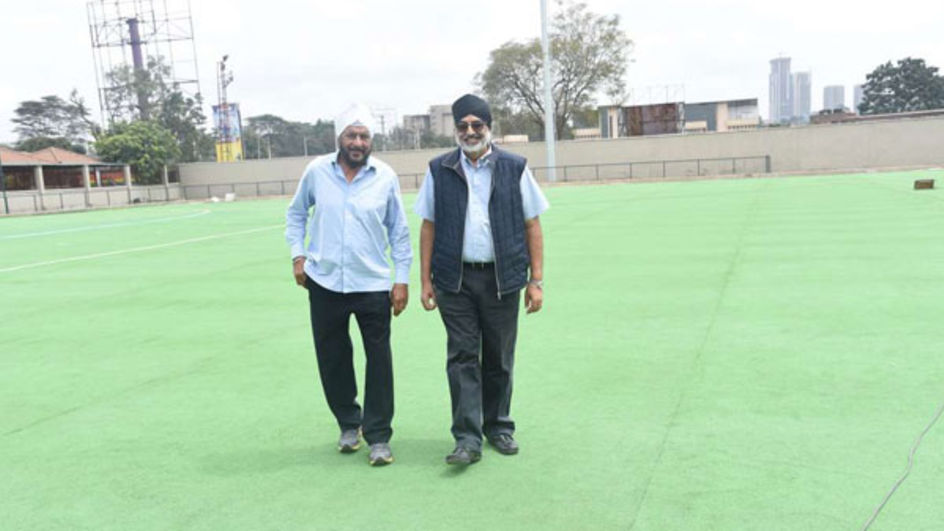
Kenyan hockey legend Avtar Singh Sohal (left) and Manminder Singh Jandu inspecting the newly constructed modern stadium at Sikh Union Club in Nairobi on July 19, 2019. PHOTO | EVANS HABIL | NATION MEDIA GROUP
He blames the dwindling standards of hockey in Kenya to reduced number of tournaments from 13 per year back in the glory days to just one league hosted by Kenya Hockey Union.
“A whole year with just one league isn’t helping much because we hardly play more than 13 matches.
“If players don’t have any tournaments to look forward to, then their morale for training and working hard goes down.
“Incentives to play hockey are also not there. We have also been training on murram or grass, yet hockey has moved to artificial playing surfaces.
“Kenya was on top in Africa in the 1980s, hammering the likes of Nigeria, Ghana, and even Egypt in Egypt, but today, we are finding ourselves in an awkward position. Even Uganda, Tanzania and Zimbabwe are troubling us on the pitch. We will be left behind if we don’t wake up.”
Sikh Union Nairobi believe they are also ready for the second phase of revival after investing in a sports academy that was started two years ago.
They hope it will become a feeder for the club and future national teams.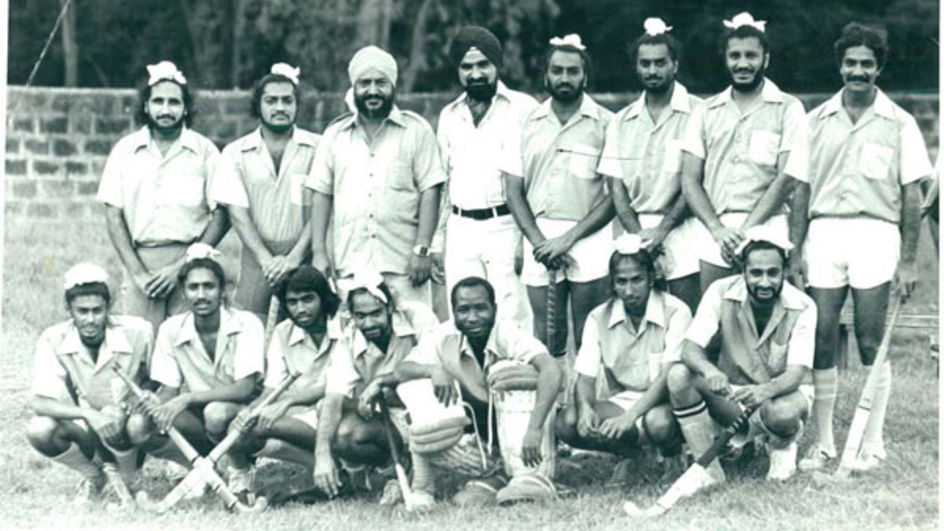
The Sikh Union team pose for a photo before their match against Karate Axiom. PHOTO | FILE | NATION MEDIA GROUP
“Through the academy, we want to ensure the exercise is right, players are committed and disciplined. These are the three pillars of excellence. Without them, you can’t excel in sport,” said “Nindi,” who is also the administrator of the Sikh Union Sports Academy.
More incentives and hockey tournaments, “Nindi” says, will also help Kenya to get back on track because “we have the talent”.
Apart from hockey, Sikh Union Nairobi is also known for motorsport and cricket.
Cricketer Sukhdeep Singh Sonu, from the academy, recently emerged the Best Sports Icon (male) at The Asian Weekly Achievers Awards (TAWA) held in Nairobi. Sikh Union Nairobi also has badminton, squash, swimming, darts and snooker and has introduced football and throwball.
The club also has plans to have a basketball court near the artificial turf pitch.
Like Sikh Union Club Nairobi, Sikh Union Club Kisumu has produced some of Kenya’s finest players — including celebrated Olympians.
Winning the National League title five times to feature in the Africa Cup club championships is just one of Kisumu Simba’s many achievements.
“It is a success story characterised by focused leadership, good selection structures, determination and commitment through the first, second, third and current generation of players,” say former Kisumu Simba stars Parminder Singh Saini “Kake” and Kamal Sembi.
HUNTING GROUNDS
Even though Kisumu Simba draws its players from schools and estates within and around the county, Kisumu Boys and Kisumu Day schools had been the hunting grounds for talent.
It is the Sikhs who pioneered Kisumu Simba and provided a firm foundation that has been the envy of many local hockey teams.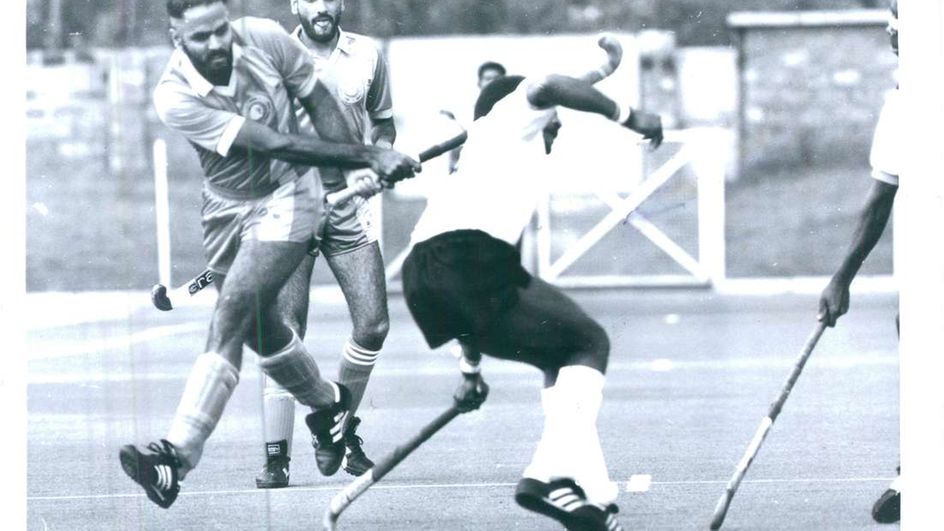
Kenya and Kisumu Simba Union forward, Parminder Singh "kake" (left) blasts the ball past a Baobab player on his way to scoring his team’s first goal in the 2-2 draw. PHOTO | FILE | NATION MEDIA GROUP
Kisumu Simba, which was born in 1950s, owes its success to Thind Aridham.
Through his hands, many national team players have been developed, especially the first generation from the 1970s and late ‘80s.
The fact that Aridham was a former Kisumu Boys headmaster, having left the school in the early ‘90s, explained why the school won several national school championship titles.
The first generation of players in Kisumu Simba are credited with Kenya’s success in finishing fourth at the inaugural 1971 World Cup in Spain, the country’s best ever performance in a global event.
Kenya lost to India 2-1 in extra time in the battle for bronze, a feat no other African country has achieved. The national team also claimed 12th position at the 1973 World Cup in the Netherlands.
It was during that period that Kenya took part in the Olympic Games, finishing sixth in 1964, eighth in 1968, and 13th in 1972.
The East Africans returned in the 1984 Olympics, finishing ninth and then coming in 12th in the 1988 Games.
Kenya also won silver in the 1974 and 1983 Africa Cup of Nations and achieved gold in the All Africa Games, for the first time ever, in 1987 in Nairobi.
1984 OLYMPICS
Some of Kisumu Simba’s earlier generation include “Kake”, the late Michael Omondi, Simi Goyal, Samuel Oguk, Roy Odhier, Satinderpal Singh Brah, Amarjit Singh Brah and Emmanuel Oduol.
“Kake” scored three goals for Kenya at the 1984 Olympics in the 3-2 win against Canada at group stage and another goal against USA in the ninth to 12th place semi-finals.
He was also in the 1987 All Africa Games squad as well as 1988 Olympics where Nairobi Simba’s Inderjit Singh Matharu “Coolie” notched three goals in Seoul — against Spain and the Netherlands at group stage and the hosts South Korea in the ninth to 12th place semi-finals.
Kisumu Simba's veteran former Kenyan international Parminder Singh "Kake" (left) dribbles past Nairobi Institute's Wyane Fernandies (right) and Solomon Omondi during a league match at City Park Stadium. Simba won 4-1. PHOTO | FILE | NATION MEDIA GROUP
Before 1990, Kenya had no national league, but championship events, that included the MR De Souza Gold Cup, the Kenya Cup, the Dashmesh Cup and the Inter-provincial Tata Cup were played.
Nairobi teams dominated these events.
Kisumu Simba remains the only team from outside the capital to win the Dashmesh Cup (in 1983), the MR De Souza Gold Cup (1984) and the Kenya Cup (1985).
Simba’s second generation of players in the 1980s and 1990s boast of their achievements in the Commonwealth Games, All Africa Games and the Africa Cup of Nations.
Some of the most notable players of the generation were Meshack Senge, Cliff Odendo, Luziro Gona, Sylvester Otieno, Joel Abdallah, William Oketch, Eric Odingo, Joseph Ndambuki, Brian Aduda, Godfrey Nyangaga, Samuel Kere, Sammy Ougo, Godfrey Wakachunga, Said Kwemba, Abel Oketch, Dennis Owoka and Barack Odaga.
Simba’s third generation that covers the 1990s to date are well-known for their performance in Club championships.
Some of the players are Cliff Okello, Kamal Sembi, Ravinda Rupra, Billy Molla, Robert Amadi, Bramwel Lijodi and Paul Gumbe, Fredrick Okeyo, Sammy Oungu, Brian Otieno, Tom Bello Ouko, Kayieko, Tony Oneko and Abeid Ngore.
They participated in the Africa Cup Club Championships in 1996 and 2003. Kisumu finished fifth each time, and in 2009, they won bronze.
Former Kisumu Simba sports secretary Kamal Sembi reckons they bagged the national titles in 2007 and 2008 because of the commitment of their players.
In addition, Kisumu Simba was able to draft in Armed Forces players like Okoth, Senge, Said Okwemba, Odaga and Owoka after the military side folded. But it has not all been a bed of roses for the club from Kisumu County.
Sembi, “Kake”, the Sikh community and other well-wishers have been supporting the club financially.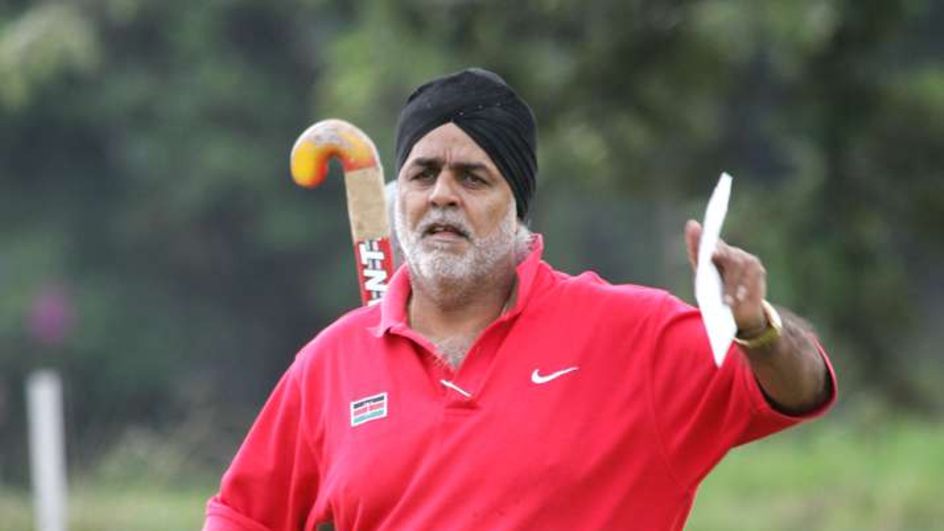
Parminder Saini Singh "Kake" the Kisumu Simba coach during their Kenya Hockey Union Premier League match against KCA at City Park Stadium on July 26, 2011. PHOTO | FILE | NATION MEDIA GROUP
Sembi says it has now become a very expensive affair to fund the team.
“Finance is a major headache. This is what is threatening to bring down Kisumu Simba,” he said during the interview.
Kake alongside the Sikh community sponsored the team for the last 20 years before Sembi came in 2002.
In 2014, it changed from Kisumu Simba Hockey Team to Butali Sugar Warriors.
This is after Butali Sugar Mills became the sole sponsor, and Kisumu Simba now does not feature in hockey anymore.
Daily Nation
Every hockey player’s dream was to play in ‘derby of the Simbas’
By GEOFFREY ANENE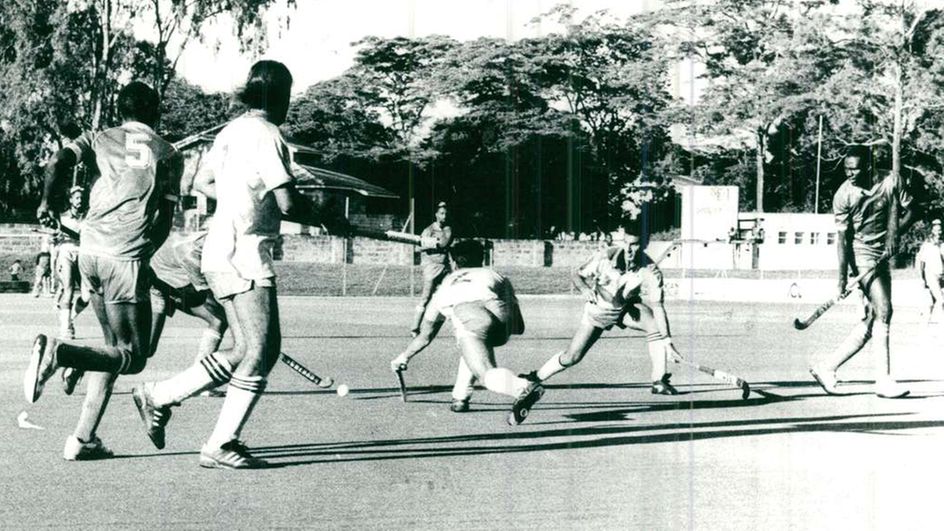
It’s a sprint for the ball for these Nairobi Simba Union and Kisumu Simba Union players during the final of the Jamhuri Cup hockey tournament at the City Park in 1990. The Nairobi team won 3-2 on penalty flicks. PHOTO | FILE | NATION MEDIA GROUP
The hockey match between the Nairobi Simba Union and Kisumu Simba Union was the clash of the two lions.
In the earlier years, Nairobi Simba was the strongest.
Narinder Singh Chana “Nindi” says in 30 meetings between these two in 1980s, Kisumu would win about two.
Kisumu Simba started to challenge Nairobi Simba towards the end of ‘80s.
“Until recent years, though, the derby was always tough. But both teams have always had good respect for each other, and the competition in the matches was always fierce,” agrees Kisumu legend Parminder Singh Saini “Kake.
DISCIPLINE AND PASSION
Former Kenya international Owoka, who played for Kisumu Simba for 10 years and then three when it changed to Butali before also coaching Butali for three years until last season, claims the rivalry ended eight years ago.
“Growing up, we all wanted to be like “Kake” or “Coolie” (Inderjit Matharu) who featured in the Africa Select team. They were so disciplined and played with a lot of passion.
“The rivalry between Kisumu and Nairobi Simba was mainly on the pitch. Off the pitch, the respect and friendship was immense.
“The Derby of the Simbas started long before I was born. Unfortunately, it ended around 2012 when Nairobi Simba just lost their glamour and became whipping boys,” says Owoka.
Said Rashid, Zack Aura and Arif Shah are some of the few players who turned out for both Kisumu and Nairobi Simba teams. Aura says he has had good times in both camps.
“I mingled with great players like “Coolie” and Kamal Sembi from both Simbas. There’s excellent atmosphere and support from both clubs,” said Aura, now a player-coach at Butali.
The Sikh community in Kenya has played, and continues to play, a major part in hockey in Kenya. “Though they may not be as prominent now as they were before, they still play a big part in hockey in Kenya through teams like Nairobi Sikh Union, Karate Axiom, run by the legend Gursharan Lall, and Avtar Singh Sohal “Tari”, who help a lot of schools,” noted Sembi.
Daily Nation
Power game ‘will continue to lead to hockey collisions’
Nicola White believes rule safety changes need adopting
The faster, stronger nature of the current world game may be a boost to the sport, but it will also result in more collisions and injuries, according to Nicola White.
White watched the FIH Pro League last year and recalled watching three players getting hurt in separate matches. And as she recovers from the severity of her concussion injury, she admitted that is currently looking into player safety and ways to make the game less dangerous – despite hockey being seen as a non-contact sport.
She said: “My concern is that the game is getting quicker and powerful. It’s great that the game is going this way but with the rise of strength and conditioning there are a lot more collisions.
“It’s a great feeling when you know you’ve made gains with the work you’ve put in. But ultimately it will lead to collisions.
“To help prevent concussion there needs to be more umpire discipline and player understanding. There is a reliance on umpires’ shoulders to see behaviour which isn’t acceptable and award more cards.”
Although White hasn’t seen much junior hockey during the last two years, she is aware of the dangers presented by the reverse stick at grass roots level – as highlighted in The Hockey Paper‘s coverage – but is not in favour of banning the technique outright.
“If you look at us at a senior level we are more alert and can get out of the way,” she said. “You can compare it to the junior game where there is less skill and core strength and where they are putting themselves at risk, especially with defenders getting in the way.
“I can understand the dangers but to ban the reverse stick is a big change. But a reverse stick dink is a compromise and you can build strength and technicality from there.”
White’s safety concerns centre around helmets and face masks, which are common in the USA and also filtering into the game in Spain.
She added: “They stop fractures and that’s a good thing but I don’t think it’s a solution as it would change people’s behaviour [on the pitch].
Overall, with concussion injuries on the rise, White is urging the FIH to look more closely into player safety as the game continues to evolve.
She concluded: “The FIH hold the rules and regulations. They are aware that this has been flagged up but whether it will be implemented soon, that’s what I’m not so sure about. We need to be aware of the other side of the coin as the game adapts.”
Does your club have interesting news or features? This email address is being protected from spambots. You need JavaScript enabled to view it.!
This originally featured in a previous Hockey Paper edition. Don’t miss out. Subscribe in print or in digital format.
The Hockey Paper
Glory After Gloom
A book after long time - Kindle edition.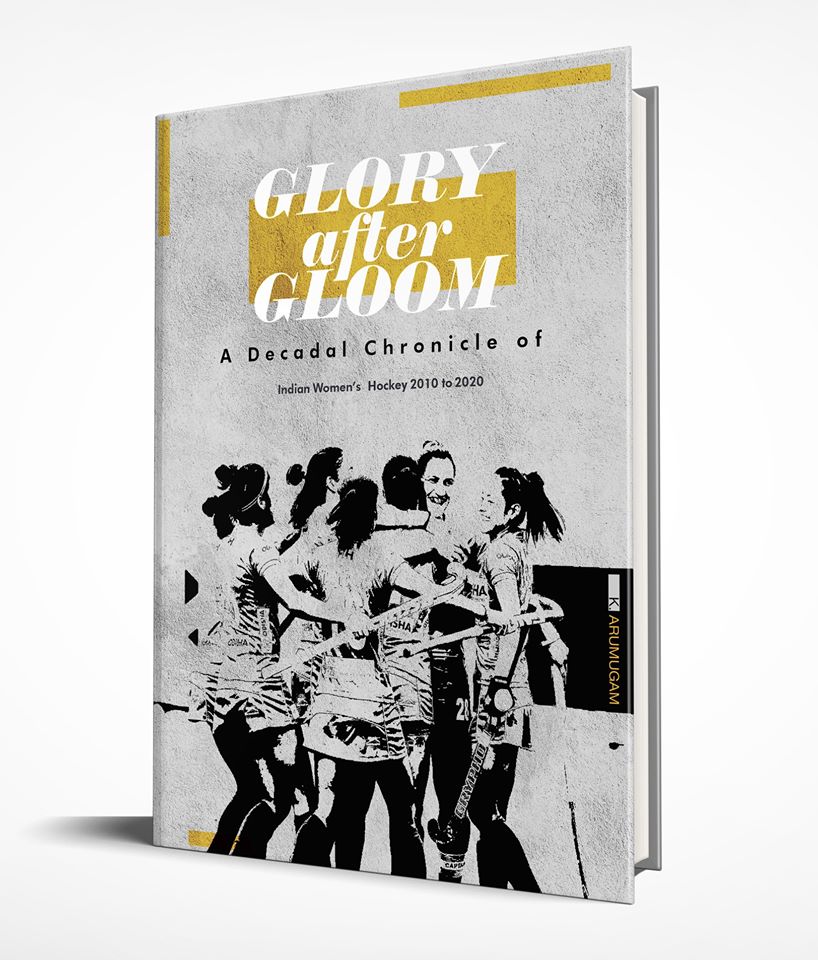
'GLORY AFTER GLOOM' is a journey with Indian women’s hockey for the last 10 years. It chronicles each and every tournament the women have taken part in since 2010; dwells on how they fared, evaluates significance in winning and losing,
with an eye for detail. Each player's career, profile, entry into the international area and their growth are traced and presented with compassion.
Besides the team's performance in international forums, how select players evolved from wannabe to winning mascots is a natural corollary to the extensive work.
The second part of the chronicle is devoted to statistics.
You can download the book on your PC, laptop, mobile with kindle apps and read. You need not have precise kindle device to read the book.
Arumugam Hockey Facebook page